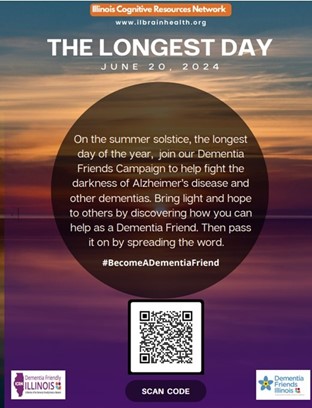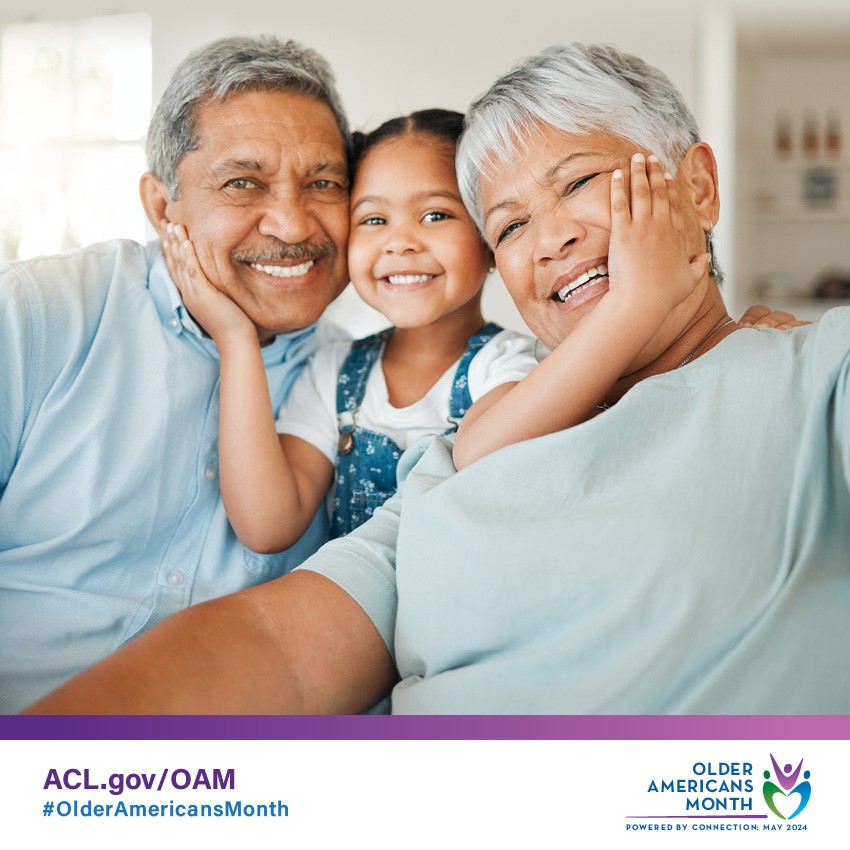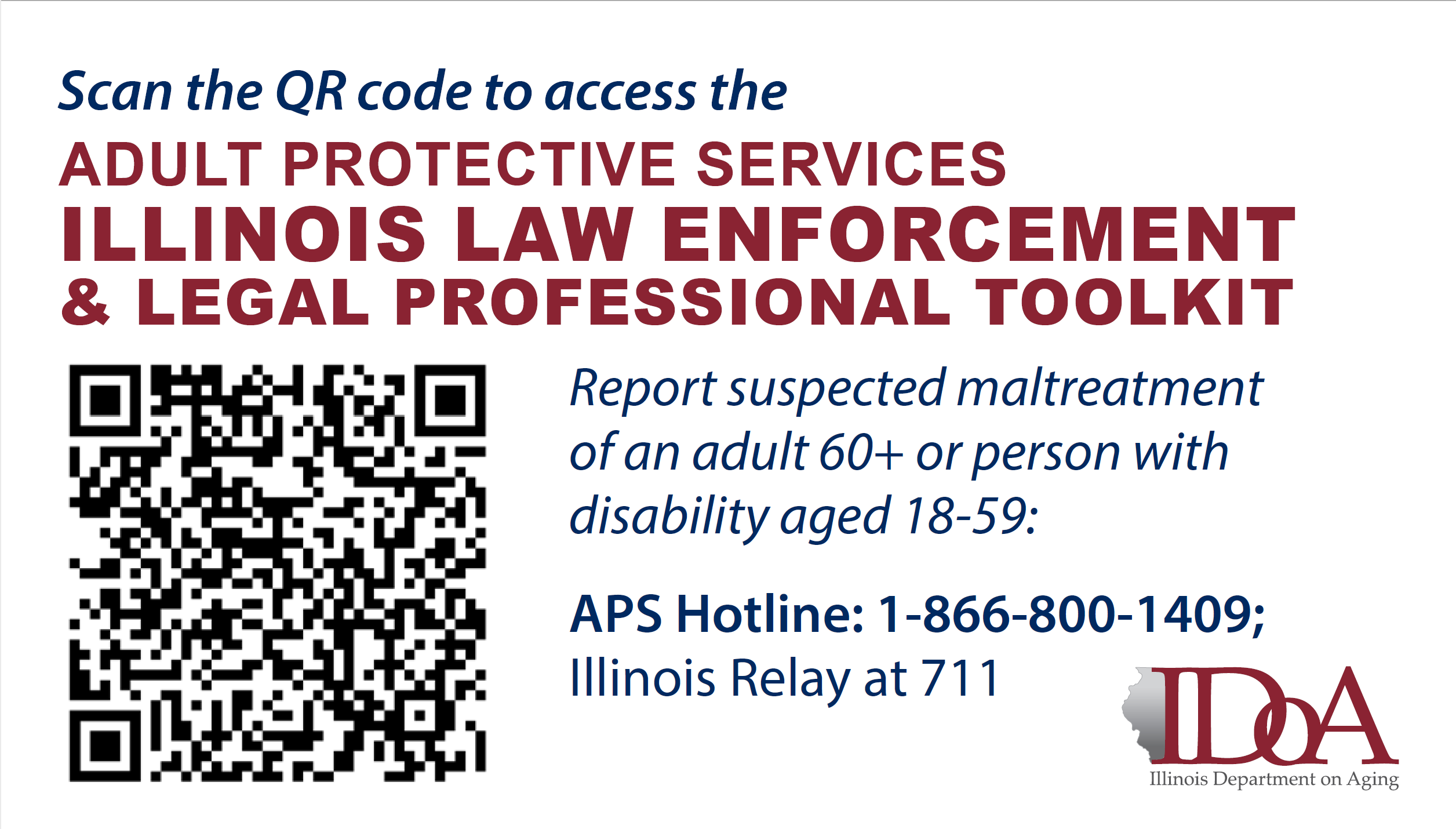NOVEMBER SPECIAL FEATURE
National Family Caregiver Month
Meet Joan, Who is Caring for Her Mother and Adult Granddaughter in East Central Illinois
Joan and her husband are currently caregivers for Joan’s mother, 98, and their adult granddaughter, 35, who live with them on their farm. Their granddaughter has cerebral palsy, is nonverbal, needs extensive physical assistance, and has multiple health conditions that require special attention. They are no longer in contact with their daughter, who had a history of not caring for their granddaughter. Joan and her husband adopted their granddaughter about five years ago.
Then, last year, Joan’s mother broke her hip and was told she could no longer live alone in her Indiana home. Joan and her sister considered finding their mother a nursing home, but Joan and her husband decided to move Joan’s mother in with them. She uses a walker, needs assistance getting out of bed, and is incontinent. Joan takes on most of the personal care, cooking and cleaning for both her mother and granddaughter. Her husband farms and helps with some caregiving. The couple hired a certified nursing assistant to help every other Saturday, giving Joan time for shopping.
“Caregiving is not easy,” Joan says. “I work as hard now as I did when I was holding down a couple of jobs.”
Managing the daily tasks is a struggle, but Joan recently acquired a horse that had worked at a therapy center. Her goal became to get her granddaughter back on a horse. Joan feeds the horses daily and takes a ride with her husband to check on the calves.
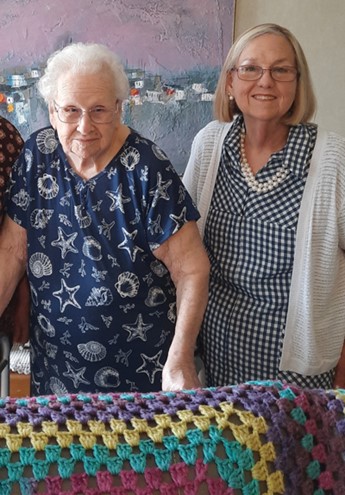
Joan and her mother
“That really helps me because I grew up in the country, and if it wasn’t for that, I’d be probably about ready to climb the walls. You gotta get out and do something,” Joan says.
Utilizing Resources
Joan heard about respite care from her minister’s wife. The respite care services, however, were only available for a limited time. Joan has since called the agency that provided respite to ask questions and has been happy to have that as a resource.
“The system is not user friendly — how you get help, how you get the information.
It is a struggle. It shouldn’t be that way.”
She did not realize that when her granddaughter turned 18 years old, she would no longer be eligible for many of the benefits and resources she’d had as a disabled child. The process of sorting out her eligibility for financial support and care options was very confusing for Joan, especially during the pandemic when the Social Security office was closed.
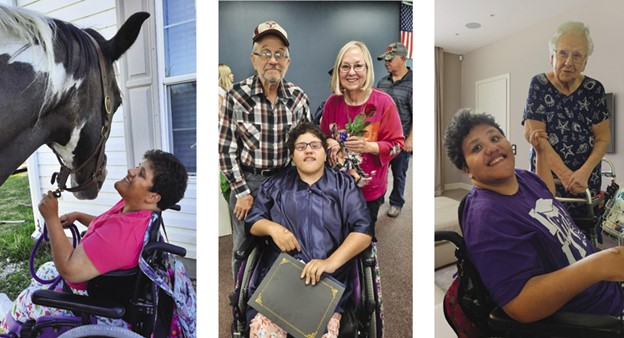
Joan with her husband and granddaughter
The Illinois Division of Rehabilitative Services has since approved Joan to be her granddaughter’s personal assistant, which has eased some of the financial burden for her. They recently received approval for a wheelchair-accessible bathroom, enabling Joan to bathe her granddaughter. However, they have not been able to find contractors willing to provide bids.
What Policymakers and Society Need to Know
Even though Joan worked in the medical field, she says she never had to figure out benefits and resources. Negotiating the transition from her granddaughter receiving supplemental security income (SSI) benefits to getting on her own Social Security was not easy.
“I don’t know how people do it that don’t have any kind of medical background. The system is convoluted. It’s not straightforward. There’s no straight answer. You get different answers from different people, depending on the agencies. It’s hard to even keep [the agencies] straight,” Joan says. Her husband adds, “The system is not user friendly — how you get help, how you get the information. It is a struggle. It shouldn’t be that way.”
Joan says that policymakers need to make it easier for people to find information. “They need to make the information straightforward and easy to understand and accessible to ordinary people,” Joan says. “It needs to be broken down into stages [of life] so that caregivers know what they need to look for next.”
People also need more funding for support, such as respite care, Joan says. “People [caregivers] need help out there. It is a labor of love, but it is labor.”
Joan says that too often in U.S. society, “Most people don’t give a second thought to people with disabilities — until it happens to you.”
She says education could foster tolerance, acceptance, and increased support for care workers. “They are essential workers,” Joan says. “They are taking care of the most vulnerable people in our society.”
Above photos courtesy of Joan
Originally published in the Winter/Spring 2024, Caregiver Magazine – based on caregiver interviews conducted by Rebecca Berman, Ph.D.
To find support and resources in your community, contact East Central Illinois Area Agency on Aging, Inc. at 309/829-2065.
